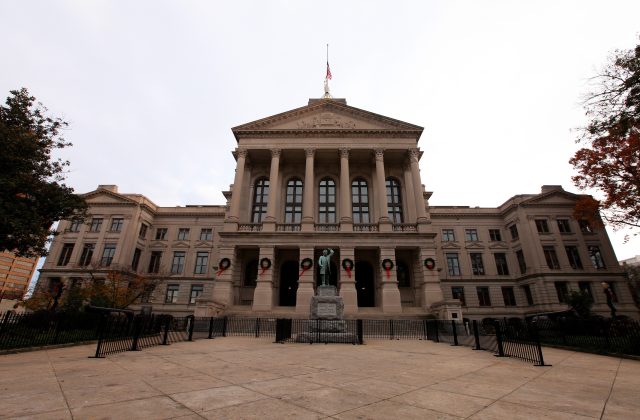The courts have long held that laws can't be copyrighted. But if the state mixes the text of the law together with supporting information, things get trickier. In Monday oral arguments, the US Supreme Court wrestled with the copyright status of Georgia's official legal code, which includes annotations written by LexisNexis.
The defendant in the case is Public.Resource.Org (PRO), a non-profit organization that publishes public-domain legal materials. The group obtained Georgia's official version of state law, known as the Official Code of Georgia Annotated, and published the code on its website. The state of Georgia sued, arguing that while the law itself is in the public domain, the accompanying annotations are copyrighted works that can't be published by anyone except LexisNexis.
Georgia won at the trial court level, but PRO won at the appeals court level. On Monday, the case reached the Supreme Court.
During Monday's oral argument, some justices seemed skeptical of Georgia's position.
"Why would we allow the official law to be hidden behind a pay wall?" asked Justice Neil Gorsuch.
Georgia's lawyer countered that the law wasn't hidden behind a paywall—at least not the legally binding parts. LexisNexis offers a free version of Georgia's code, sans annotations, on its website.
But that version isn't the official code. LexisNexis' terms of service explicitly warns users that it might be inaccurate. The company also prohibits users from scraping the site's content. If you want to own the latest official version of the state code, you have to pay LexisNexis hundreds of dollars. And if you want to publish your own copy of Georgia's official code, you're out of luck.
Blurred lines
You might think that PRO could just publish the un-annotated version of Georgia's code. The problem, as PRO's Supreme Court brief pointed out, is that Georgia doesn't publish an un-annotated version. The annotated version is the only official version.
An obvious solution would be for Georgia and LexisNexis to separate the two works. Georgia could publish an official, un-annotated version of the state code that would be in the public domain. LexisNexis could independently produce and publish an annotated guide to the state code, keep the copyright, and charge customers for it. Indeed, Westlaw produces its own copyrighted annotation of the Georgia state code.
But the state of Georgia argues that the intermingling of statute and annotations is necessary to finance the creation of the annotations in the first place. LexisNexis covers the costs of producing the annotated code, then it recoups its investments by charging for copies of it. If the Supreme Court holds that the Official Code of Georgia Annotated is in the public domain, this business model wouldn't work any more.
But intermingling copyrighted and public domain works creates headaches for third parties wanting to make use of the code.

Georgia's position is that only the legally binding portions of the state code are copyrightable. But legal documents almost always contain a mix of binding and non-binding elements. If the Supreme Court buys Georgia's argument, it will create a legal minefield for organizations like PRO, since the line between copyrightable and non-copyrightable content will get fuzzier. Anyone wanting to republish an official legal document will have to hire legal experts to go through the documents with a fine-tooth comb trying to determine which portions of the documents are in the public domain and which ones might not be.
PRO arguesRead More – Source







